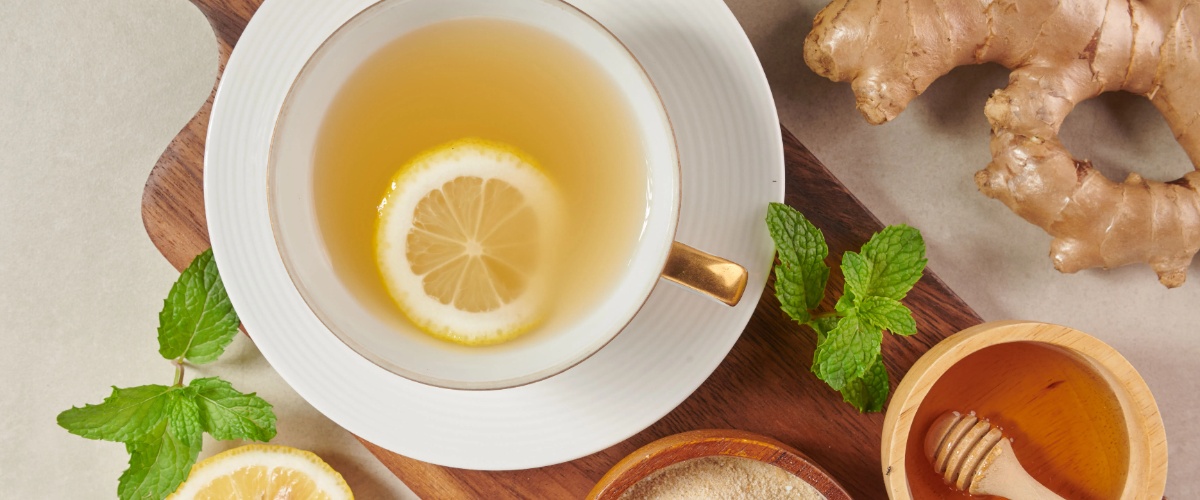In the pursuit of holistic health and wellness, nature has always provided us with a treasure trove of powerful compounds with a variety of benefits. One compound that has received attention in recent years is dehydrozingerone. Derived from ginger, dehydrozingerone is a bioactive compound with great potential to promote overall health and well-being. It has a variety of benefits, including anti-inflammatory, antioxidant properties, making it a valuable addition to our arsenal of natural health-promoting compounds. By unlocking the power of dehydrozingerone, we can take a step toward achieving optimal health and vitality.
Dehydrozingerone is a naturally occurring compound in ginger, a popular spice and herb that has been used in traditional medicine systems for centuries. It belongs to a class of compounds called gingerols, which are responsible for many of the health benefits associated with ginger. Dehydrozingerone is structurally similar to curcumin, but its bioavailability is much higher due to its ability to mix with water. Dehydrozingerone is formed by dehydration of another gingerol compound (6-gingerol) and has a unique chemical structure and biological activity.
Dehydrozingerone has the following abilities:
●Improve blood sugar regulation
●Powerful antioxidant activity, especially against processed foods/oils
●Anti-inflammatory properties
●Anti-proliferative effect of unhealthy cell growth
●Overall mood improved
Dehydrocyanin activates AMP-activated protein kinase (AMPK), which helps improve metabolic function and better glucose uptake. Taken together, this results in powerful anti-aging and weight loss effects and may be more promising than curcumin itself.

Dehydrozingerone is a compound belonging to the phenolic organic compound class. It is a derivative of zingerone, a natural compound found in ginger.
The structure of dehydrozingerone consists of a phenolic ring with a ketone group and a double bond. The chemical formula of dehydrozingerone is C11H12O3, and its molecular weight is 192.21 g/mol. The molecular structure of dehydrozingerone is characterized by the presence of a six-membered aromatic ring with a hydroxyl group (OH) attached. In addition, there is a ketone group (C=O) and a double bond (C=C) in the structure.
The presence of the phenolic ring in dehydrozingerone determines its antioxidant properties. Phenolic compounds are known for their ability to scavenge free radicals and protect cells from oxidative damage. This makes dehydrozingerone potentially beneficial in fighting oxidative stress and reducing the risk of chronic diseases related to free radical damage.
Furthermore, the ketone group in the structure of dehydrozingerone contributes to its reactivity and potential biological activity. Ketones are multifunctional functional groups that can participate in a variety of chemical reactions, making dehydrozingerone a molecule of interest in medicinal chemistry and drug discovery.
The double bonds in the structure of dehydrozingerone also increase its chemical reactivity and may play a role in its biological activity. Double bonds can undergo addition reactions, and their presence in organic compounds often affects their physical and chemical properties.
In terms of its biological effects, dehydrozingerone has been studied for its anti-inflammatory properties. Inflammation is the immune system's natural response to injury or infection, but chronic inflammation can lead to the development of a variety of diseases. Dehydrozingerone has shown potential to modulate inflammatory pathways and reduce the production of pro-inflammatory molecules in cells.
The structure of dehydrozingerone also makes it a candidate for further research in the fields of natural product chemistry and drug development. Understanding their chemical properties and reactivity can help in the design of derivatives with enhanced biological activity or improved pharmacokinetic characteristics.

1. Its anti-inflammatory properties
Inflammation is the body's natural response to injury or infection, but when it becomes chronic, it can contribute to the development of a variety of diseases, including arthritis, cardiovascular disease, and cancer. Dehydrozingerone has been shown to inhibit the production of inflammatory mediators and reduce the expression of pro-inflammatory genes, making it a potential candidate for the development of anti-inflammatory drugs.
2.Antioxidant properties
Oxidative stress occurs when there is an imbalance between the production of free radicals and the body's ability to neutralize them, and is linked to the development of a variety of diseases, including neurodegenerative diseases, cardiovascular disease, and cancer. Dehydrozingerone has been shown to scavenge free radicals and protect cells from oxidative damage, suggesting that it may have potential as a natural antioxidant.
3. Potential anti-cancer properties
Cancer is a complex and multifaceted disease, and finding effective treatments remains a major challenge. Research shows that dehydrozingerone can inhibit the growth and proliferation of cancer cells, induce apoptosis (programmed cell death) in cancer cells, and inhibit the formation of new blood vessels necessary for tumor growth. These findings suggest that dehydrozingerone may have potential as an anticancer agent, either alone or in combination with other anticancer drugs.
4. Effects on cardiovascular system
Cardiovascular disease, including heart disease and stroke, is the leading cause of death worldwide. Dehydrozingerone has been shown to have vasodilatory effects, meaning it relaxes and widens blood vessels, which may help lower blood pressure and improve blood flow. Additionally, it has been found to inhibit the formation of blood clots, a leading cause of heart attacks and strokes. These findings suggest that dehydrozingerone may have the potential to prevent and treat cardiovascular disease.
In addition to its pharmacological properties, dehydrozingerone has also been studied for its potential use in the food and cosmetic industries. As a natural compound with antioxidant and anti-inflammatory properties, it is used as a food preservative or additive and in skin care products. Its ability to scavenge free radicals and reduce inflammation may make it a valuable ingredient in the development of functional foods and natural skin care products.

1. Quality and Purity
When choosing a dehydrozingerone supplement, it is important to prioritize quality and purity. Look for products made by reputable companies and rigorously tested for purity and potency. Choose supplements that are free of additives, fillers, and artificial ingredients. Additionally, consider choosing products that are certified organic to ensure you are getting a high-quality natural supplement.
2. Bioavailability
Bioavailability refers to the body's ability to absorb and utilize a substance. When choosing a dehydrozingerone supplement, choose the product with the best bioavailability. By choosing a supplement with high bioavailability, you can ensure that your body can effectively utilize dehydrozingerone for maximum benefits.
3. Recipe
Consider dehydrozingerone supplement formulations. Some products may contain other ingredients that complement the effects of dehydrozingerone, such as turmeric or other antioxidants. These synergistic ingredients enhance the overall effectiveness of the supplement. Additionally, consider the form of the supplement, whether capsule, powder, or liquid, and choose the one that best suits your preferences and lifestyle.
4. Brand reputation
When choosing a dehydrozingerone supplement, consider the brand's reputation. Look for a company with a track record of producing high-quality, effective supplements. Research the brand's manufacturing practices, ingredient sourcing, and commitment to quality. Reading customer reviews and seeking advice from healthcare professionals can also provide valuable insights into your brand's reputation.
5. Transparency and testing
Choose dehydrozingerone supplements from companies with transparent sourcing and testing practices. Look for products that are tested by third-party labs for purity, potency, and safety. Transparency in the manufacturing and testing process demonstrates a commitment to quality and guarantees the integrity of the supplement.
6. Health goals
When choosing a dehydrozingerone supplement, consider your specific health and wellness goals. Whether you're looking to support joint health, reduce inflammation, or enhance overall health, choose a supplement that suits your individual needs. Some products may be formulated for specific purposes, such as supporting cognitive function or promoting digestive health, so it's important to choose a supplement that fits your goals.
7. Consult a healthcare professional
Before adding any new supplements to your health routine, it is recommended to consult a healthcare professional, especially if you have any underlying health conditions or are taking medications. A healthcare professional can provide personalized advice based on your personal health condition and help you determine which dehydrozingerone supplement is best for your needs.
Suzhou Myland Pharm & Nutrition Inc. has been engaged in the nutritional supplement business since 1992. It is the first company in China to develop and commercialize grape seed extract.
With 30 years of experience and driven by high technology and a highly optimized R&D strategy, the company has developed a range of competitive products and become an innovative life science supplement, custom synthesis and manufacturing services company.
In addition, Suzhou Myland Pharm & Nutrition Inc. is also an FDA-registered manufacturer. The company's R&D resources, production facilities, and analytical instruments are modern and multifunctional, and can produce chemicals from milligrams to tons in scale, and comply with ISO 9001 standards and production specifications GMP. .
Q: What is Dehydrozingerone and how does it contribute to holistic health?
A: Dehydrozingerone is a natural compound found in ginger that has been studied for its potential health benefits, including anti-inflammatory, antioxidant properties, contributing to holistic health.
Q: How can Dehydrozingerone be incorporated into a holistic health regimen?
A: Dehydrozingerone can be incorporated into a holistic health regimen through dietary sources such as ginger root, as well as through supplements and topical applications for its potential health-promoting effects.
Q: How can Dehydrozingerone support immune function and overall well-being?
A: Dehydrozingerone’s anti-inflammatory and antioxidant properties may support immune function and overall well-being by helping to reduce oxidative stress and inflammation in the body.
Q: In what forms is Dehydrozingerone available for consumption or use?
A: Dehydrozingerone is available in dietary forms such as ginger root, as well as in concentrated forms such as supplements, extracts, and topical preparations for various health applications.
Q: How does Dehydrozingerone compare to other natural compounds in promoting holistic health?
A: Dehydrozingerone shares similarities with other natural compounds such as curcumin and resveratrol in its potential to support holistic health through its anti-inflammatory and antioxidant properties.
Disclaimer: This article is for general information only and should not be construed as any medical advice. Some of the blog post information comes from the Internet and is not professional. This website is only responsible for sorting, formatting and editing articles. The purpose of conveying more information does not mean that you agree with its views or confirm the authenticity of its content. Always consult a health care professional before using any supplements or making changes to your health care regimen.
Post time: Apr-09-2024





